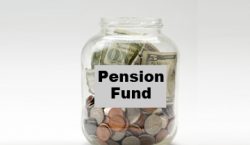

Nike is facing a backlash in Japan over an advert which highlights racial discrimination in the country.
The video shows the “real life experience” of three young soccer players from mixed heritage.
It has about 25 million views on social media and almost 80,000 shares.
But it has sparked fierce debate as Japan is unaccustomed to openly discussing sensitive issues such as race, with some questioning whether a foreign brand should have waded in.
Nike Japan said the ad highlights how people “overcome their daily struggles and conflicts to move their future through sports”.
But some comments on social media said Nike was exaggerating the scale of discrimination, arguing that it was unfair to single out Japan. Other users threatened to boycott Nike products.
One comment said: “It’s as if they are trying to say this kind of discrimination is everywhere in Japan.”
However, there were also positive comments about the ad, titled “The Future Isn’t Waiting”, for highlighting the issue of racism.
“Many Japanese do not like to be told by outside voices to change their ways,” said Morley Robertson, a half-Japanese, half-American journalist.
“But if a foreigner demonstrates a deep understanding of Japanese culture or Japanese rules, then those same Japanese who would otherwise take offense will gush forth with praise.”
Steve McGinnes, the author of “Surfing the Asian wave: How to survive and thrive in the new world order”, believes the advert is an “own goal”.
“Endemic racism is going to be a sensitive topic in any culture. But Nike should not think, as a foreign brand, that it is appropriate for them to point it out to their hosts.
“They are crudely putting a spotlight onto a subject that many feel should be off limits to guests. It’s a huge own goal for Nike.”
Nike is not the only Western brands to come under fire for not understanding Asian cultures and consumer behaviour.
Last year, luxury French brand Dior was criticised for using a map of China that excluded Taiwan.
Taiwan has been self-ruled since the 1950s, but Beijing’s official policy is that the island is a Chinese province.
“Arrogance and complacency can be the worst enemies for Western brands in Asia as management teams may underestimate the pride of Asia and local cultures by Asian consumers,” said Martin Roll, a brand adviser and author on Asian business.
“In 2020, should America or an American brand be taking the high ground on racism and telling the rest of the world what they are doing wrong?” adds Mr McGinnes. “Clearly, a lot of Japanese people think they shouldn’t.”


However, Mr Morley says Nike did understand the sensitivity of the issue.
“They are telling it from the unique individual’s side. Most advertising in Japan skirts around delicate issues like discrimination because someone might feel bad.”
But controversy doesn’t always lead to a fall in sales, and can actually have the opposite effect.
Nike’s campaigns in the US featuring Colin Kaepernick, the former NFL quarterback who knelt during the national anthem to protest racial injustice, saw sales increase.
“Nike’s sales will probably go up. Haters will buy their merchandise any way,” added Mr Robertson. – bbc.com